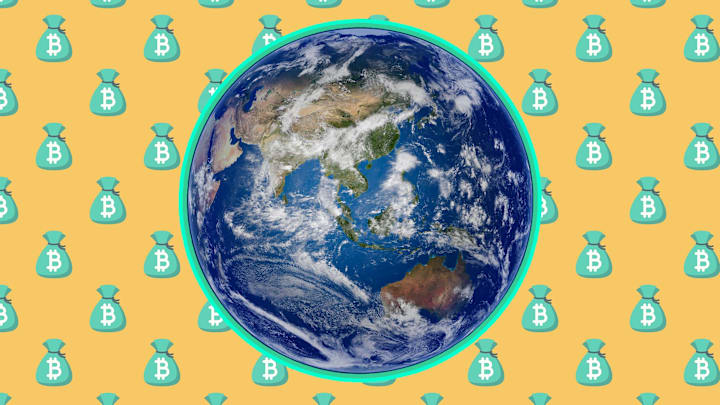Our home planet may be the most precious place we know, but it isn’t priceless. Earth’s resources and the value they offer to humans add up to some colossal, tangible cost. Our species may never have to worry about buying or selling the world, but thinking of it in terms of concrete numbers can help us better understand its value. Now, as Treehugger reports, one scientist has developed a special formula that allows us to do just that.
According to calculations made in 2020 by Dr. Greg Laughlin, now a professor of astronomy at Yale University, Earth is worth roughly $5 quadrillion (or $5,000,000,000,000,000). He came up with that price after gauging the planet’s mass, temperature, age, and other factors that directly correlate to its ability to sustain life.
To emphasize just how valuable Earth is, Laughlin also estimated the worth of other planets in our solar system according to their ability to provide resources for living things. Our nearest neighbor, Mars, costs $16,000, which is a lot less than the current average price for a used car. But that’s a fortune compared to Venus, which he appraised at the meager value of one cent. Maybe Venus’s atmosphere, which is 96 percent carbon dioxide, and its 224 mph winds have something to do with it.
Laughlin doesn't expect these numbers to have applications in the real world. Rather, he hopes they will inspire people to better appreciate the only home they know. He’s not the first person to put a massive, hypothetical price tag on something just for fun. The cost of the Death Star from Star Wars has been calculated at $852 quadrillion—many times Laughlin’s estimate for Earth.
Have you got a Big Question you'd like us to answer? If so, let us know by emailing us at bigquestions@mentalfloss.com.
A version of this story was published in 2020; it has been updated for 2023.
